NFA Regulatory Entity

In this article
The National Futures Association is a self-regulatory organisation about the industry. It is an organisation for the US derivatives industry that provides effective regulatory programs. It was founded in 1981 by the Commodity Futures Trading Commission.
NFA was made mandatory for anyone operating in the futures market in 1982. Professionals required to be NFA registered include individuals or firms conducting business in the retail or futures industry.
As a self-regulatory regime, NFA mandated firms and individuals in retail or derivatives markets to be members of the NFA. Therefore, the professionals involved in the retail forex, derivatives, or futures markets have to be NFA registered.
The NFA may take disciplinary action against members in breach of these rules.
History of NFA
In 1974, the Commodity Futures Trading Commission (CTFC) was established by Congress. The legislation that established the CTFC also authorised the creation of a self-regulatory organisation. This organisation served as a registered futures association. The National Futures Association was officially launched in September 1981. NFA started its regulatory operations in 1982. It mandated firms and individuals conducting business in the derivatives market to be NFA members. The headquarters of NFA is in Chicago, Illinois. It also maintains an office in New York City.
Aims of NFA
The National Futures Association strives to grow a diverse and inclusive culture. A culture that benefits from the creativity and unique contributions of each of their staff members. The main goal of NFA is:
- To protect the integrity and reputation of the derivatives market.
- To ensure that the members meet the regulatory obligations.
- To identify industry best practices and mandate these practices across the entire industry.
Self-Regulatory Body
National Futures Association identifies as a self-regulatory body. Self-regulation of NFA involves identifying the industry’s best practices. These can be the following:
- Financial Requirements
- Business Conduct
- Sales Practice
- Cyber Security
NFA regulation also includes mandating these practices for the members of the futures or derivatives industry.
Responsibilities of NFA as a Regulatory Entity
The National Futures Association has played a very important role in the regulation of derivatives and futures markets. In addition to providing information to its members and conducting outreach programs, NFA is responsible for the following:
* To regulate the financial derivatives market in the United States.
* To develop the necessary rules that are to be followed by the members and investors.
* To ensure that all of the rules are implemented and practised by the derivatives industry professionals.
* To ensure that all the members and investors meet their regulatory responsibilities.
* To identify the best practices in certain areas and make those compulsory for the entire industry.
* To resolve disputes that are related to derivative trades.
* To provide a platform that can be used to protect the investors and members.
* To provide timely information to its members, investors and regulators.
* To combat fraud and abuse in the futures markets.
* To protect members and investors through real-time market surveillance.
* To enhance market integrity through a combination of registration requirements and strong enforcement authority.
* To safeguard the reputation of the derivatives industry through compliance functions such as trade practice.
Governance
NFA’s Board of Directors is its principal governing body. The Board of Directors is majorly responsible for the regulatory functions of NFA. In addition, it serves as the governing and development body for the National Futures Association. The Board consists of both Member Directors and Public Directors.
They meet four times a year and are elected by the Members they represent. In addition to the Board of Directors, NFA has numerous committees. These committees offer guidance on rule-making and compliance. In addition, these committees provide advice on various other initiatives.
Members of NFA
Members of the NFA include most entities that engage in derivatives with the public. Other NFA members include US futures exchanges, swap dealers or major swap participants. The investors or members of the derivatives or futures markets must be NFA registered. NFA is made mandatory for anyone operating in the futures market, retail industry or derivatives market.
NFA Registration
National Futures Association registers all members through its qualified registration department. The registration is granted to those professionals who meet the CFTC’s and NFA’s standards. The registration is granted to the investors after NFA has conducted background checks and reviewed the policy. If the members are deemed to fit the proficiency requirements, they are granted registration. Members include firms and individuals, both with their respective registrations.
Firm Registration
The Commodity Exchange Act requires certain firms to be registered with NFA. These firms conduct their business in the futures and derivatives industry. Firm registration includes the following:
- Commodity Trading Advisor
- Commodity Pool Operator
- Exempt- Non-US Firm
- Future Commission Merchant
- Introducing Broker
- Notice Registered Broker-Dealer
- Retail Foreign Exchange Dealer
- Swap Dealer
Individual Registration
The Commodity Exchange Act requires certain individuals to be registered with NFA. These individuals are involved with the derivatives market or are swap dealers. Individual registration includes the following
- Associated Person
- Floor broker
- Floor trader
- Principal
Facilitating Members
Various departments of the National Futures Association work diligently to facilitate members and protect market integrity. For example, the Intelligence Department of the NFA develops secure and robust applications for their members. In addition, NFA ensures that their staff are provided with continuous IT support.
NFA Basic
BASIC, Background Affiliation Status Information Centre, is a free tool that is used for accessing information. Members and Investors use this free tool to search the background of the industry professionals. The information available is about the individuals and businesses relating to the derivative or futures market. BASIC can be a valuable resource for members who can access this system on the internet. In addition, the information centre is a resource for the members to ask questions and file customer complaints.
NFA Funding
The National Futures Association is financed by payments from membership dues and assessments fees. These payments are made by the members and investors of the derivatives market. NFA’s swap dealers and forex dealers are funded by membership dues. While its futures compliance activities are funded by an assessment fee. The Board of Directors reviews and approve its budget annually.
Bottom line
To sum it all up, the National Futures Association came into existence to enhance and protect the integrity of the derivatives market. It has been made compulsory for professionals of the futures market to protect investors. In addition, the NFA has served as a regulatory body for the United States to combat fraud in the industry.
Jason Morgan is an experienced forex analyst and writer with a deep understanding of the financial markets. With over 13+ years of industry experience, he has honed his skills in analyzing and forecasting currency movements, providing valuable insights to traders and investors.
Forex Content Writer | Market Analyst
Relevant Posts

PRA Regulatory Entity
[top_three_brokers] PRA stands for Prudential Regulation Authority. It works as a regulatory and supervisory authority…
Read more

CMVM Regulatory Entity
[top_three_brokers] The CMVM is a forex broker company set up in Portugal that provides financial…
Read more

CySEC Regulatory Entity
[top_three_brokers] CySEC, Cyprus Securities and Exchange Commission, is an independent public regulatory authority responsible for…
Read more

KROUFR Regulatory Entity
[top_three_brokers] The Financial Market Participants Relations Regulation Commission, KROUFR, is a non-profit regulatory organisation. Its…
Read more

IIROC Regulatory Entity
[top_three_brokers] The Investment Industry Regulatory Organization of Canada (IIROC) is an independent self-regulatory organization within…
Read more

CONSOB Regulatory Entity
[top_three_brokers] The Commissione Nazionale per le Società e la Borsa, also known as the CONSOB,…
Read more

FSMA Regulatory Entity
[top_three_brokers] The Financial Services and Markets Authority is the main agency for financial regulation in Belgium. As…
Read more

CNMV Regulatory Entity
[top_three_brokers] The National Securities Market Commission (CNMV) is a regulatory body that inspects and supervises…
Read more

SFC Regulatory Entity
[top_three_brokers] The Securities and Futures Commission of Hong Kong is known as the SFC. As…
Read more

FSC Korean Regulatory Entity
[top_three_brokers] Korean FSC Regulatory Entity (The Financial Services Commission -Korea) is a government-run organisation responsible…
Read more

PRA Regulatory Entity
[top_three_brokers] PRA stands for Prudential Regulation Authority. It works as a regulatory and supervisory authority…
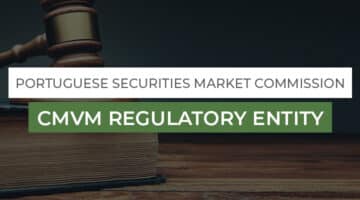
CMVM Regulatory Entity
[top_three_brokers] The CMVM is a forex broker company set up in Portugal that provides financial…
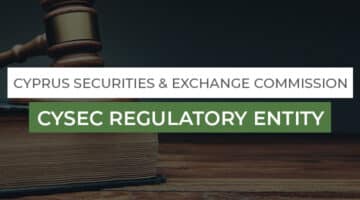
CySEC Regulatory Entity
[top_three_brokers] CySEC, Cyprus Securities and Exchange Commission, is an independent public regulatory authority responsible for…
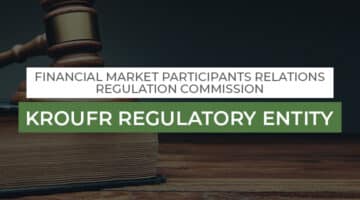
KROUFR Regulatory Entity
[top_three_brokers] The Financial Market Participants Relations Regulation Commission, KROUFR, is a non-profit regulatory organisation. Its…

IIROC Regulatory Entity
[top_three_brokers] The Investment Industry Regulatory Organization of Canada (IIROC) is an independent self-regulatory organization within…
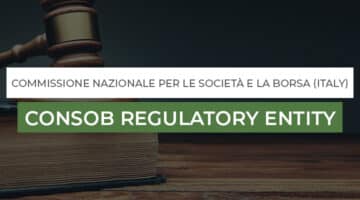
CONSOB Regulatory Entity
[top_three_brokers] The Commissione Nazionale per le Società e la Borsa, also known as the CONSOB,…
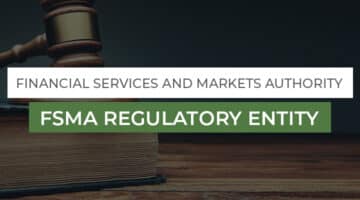
FSMA Regulatory Entity
[top_three_brokers] The Financial Services and Markets Authority is the main agency for financial regulation in Belgium. As…
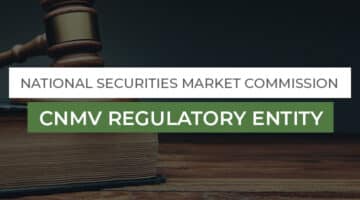
CNMV Regulatory Entity
[top_three_brokers] The National Securities Market Commission (CNMV) is a regulatory body that inspects and supervises…
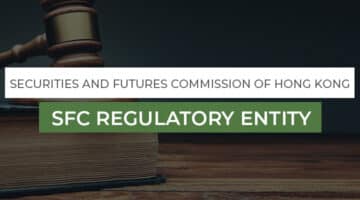
SFC Regulatory Entity
[top_three_brokers] The Securities and Futures Commission of Hong Kong is known as the SFC. As…
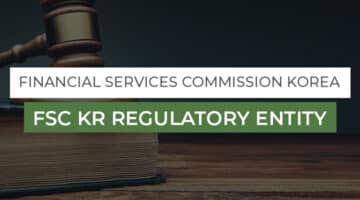
FSC Korean Regulatory Entity
[top_three_brokers] Korean FSC Regulatory Entity (The Financial Services Commission -Korea) is a government-run organisation responsible…


